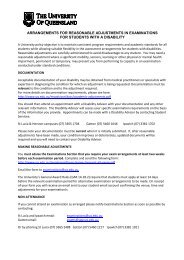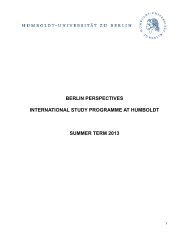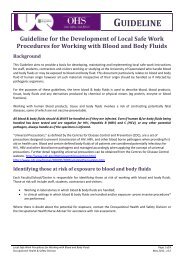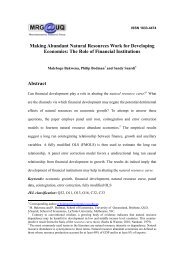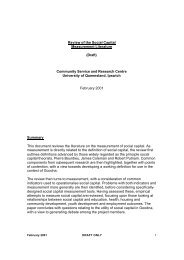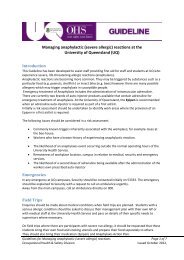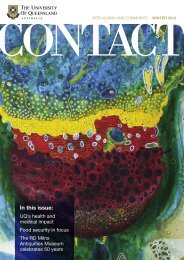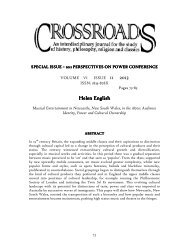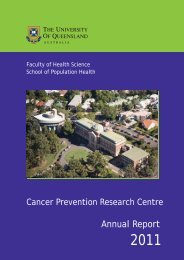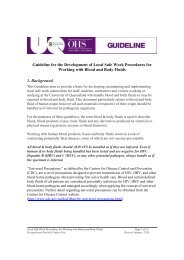Thinking, Willing and Judging - University of Queensland
Thinking, Willing and Judging - University of Queensland
Thinking, Willing and Judging - University of Queensland
You also want an ePaper? Increase the reach of your titles
YUMPU automatically turns print PDFs into web optimized ePapers that Google loves.
lxv See the discussion <strong>of</strong> the role <strong>of</strong> rehearsal in this regard in Ibid. 134-36.lxvi See, for example, Beiner, "Hannah Arendt on <strong>Judging</strong>.", Ronald Beiner, "Rereading Hannah Arendt's KantLectures," Philosophy <strong>and</strong> Social Criticism 23, No. 1 (1997), Seyla Benhabib, The Reluctant Modernism <strong>of</strong>Hannah Arendt (Lanham: Rowman & Littlefield, 2003), Richard J Bernstein, "<strong>Judging</strong> - the Actor <strong>and</strong> theSpectator," in The Realm <strong>of</strong> Humanitas: Responses to the Writings <strong>of</strong> Hannah Arendt (New York: Lang, 1990),Kimberley Curtis, Our Sense <strong>of</strong> the Real: Aesthetic Experience <strong>and</strong> Arendtian Politics (Ithaca & London:Cornelll <strong>University</strong> Press, 1999), Linda M G Zerilli, "'We Feel Our Freedom': Imagination <strong>and</strong> Judgment in theThought <strong>of</strong> Hannah Arendt," Political Theory 33, No. 2 (2005).lxvii Deutscher, Judgment after Arendt 58.lxviii For Arendt’s discussion <strong>of</strong> the actor <strong>and</strong> spectator, see Arendt, Lectures on Kant's Political Philosophy 54-63. See also Arendt, "Crisis in Culture" 211-26, Arendt, The Human Condition 192, Arendt, The Life <strong>of</strong> theMind: <strong>Thinking</strong> 215-16.lxix See Arendt, Lectures on Kant's Political Philosophy 55.lxx These issues <strong>of</strong> detachment <strong>and</strong> involvement <strong>and</strong> their relation to objectivity are explored in Max Deutscher,Subjecting <strong>and</strong> Objecting: An Essay in Objectivity (St Lucia: <strong>University</strong> <strong>of</strong> Queensl<strong>and</strong> Press, 1983) 19-28.lxxi‘To the extent that the teller <strong>of</strong> factual truth is also a storyteller, he brings about that ‘reconciliation withreality’ which Hegel … understood as the ultimate goal <strong>of</strong> all philosophical thought … The political function <strong>of</strong>the storyteller – historian or novelist – is to teach acceptance <strong>of</strong> things as they are’ - Hannah Arendt, "Truth <strong>and</strong>Politics," in Between Past <strong>and</strong> Future 262. See also Hannah Arendt, "Underst<strong>and</strong>ing <strong>and</strong> Politics," in Essays inUnderst<strong>and</strong>ing, ed. Jerome Kohn (New York: Schocken Books, 1994), 308-9.64


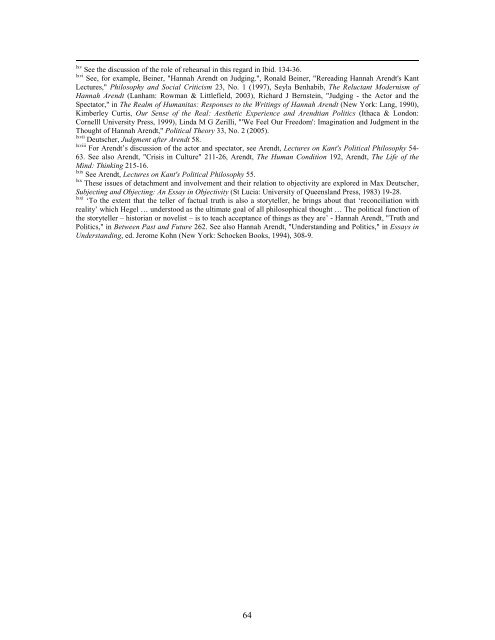
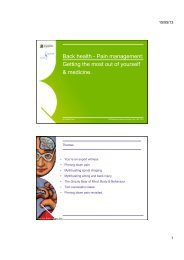
![Recycling [ PDF, 62KB ] - University of Queensland](https://img.yumpu.com/51805185/1/184x260/recycling-pdf-62kb-university-of-queensland.jpg?quality=85)
